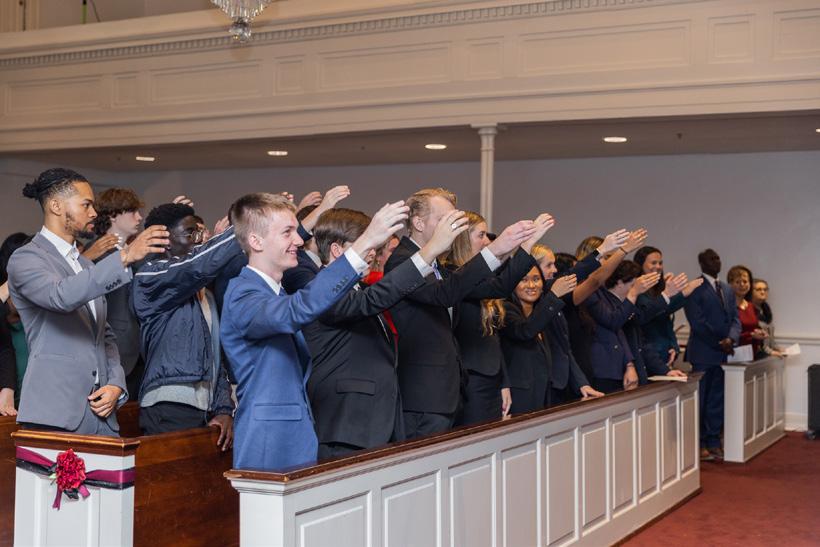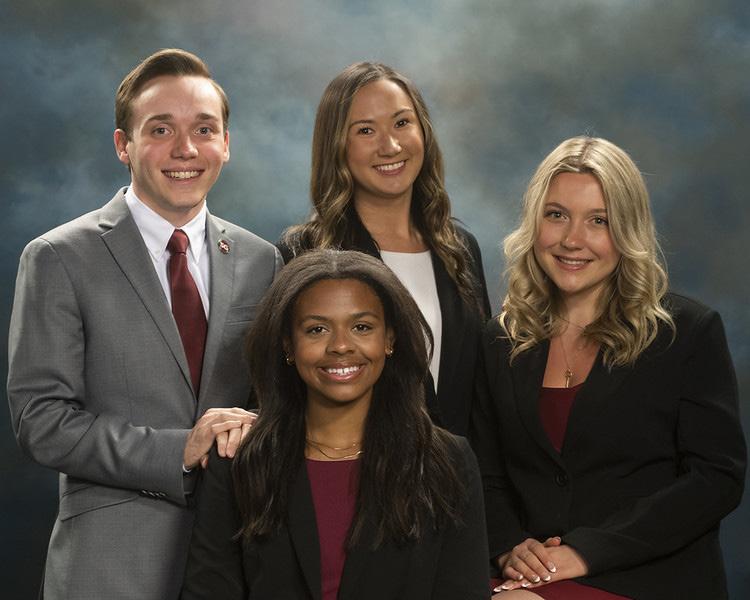
1 minute read
StuDeNT gOvErNMent StuDeNT gOvErNMent
STUDENTS INTERESTED IN being a representative for their fellow Gamecocks at the University of South Carolina should consider getting involved in Student Government, as the organization provides opportunities for student voices to be heard and ultimately improve life at UofSC.

Advertisement
Student Government consists of a variety of involvement opportunities including positions as executive officers and within the Executive Cabinet, Student Senate, Freshman Council, Constitutional Council, Elections Commission, Government Relations and as members of university committees.


The Senate is made up of 50 senators corresponding to their respective colleges within the university, who are elected each year at the same time as the executive officers. The number of senators for each college is based on the number of students who are enrolled in the college. Senators draft, amend and vote on legislation that affects students and faculty on campus. The Senate has 10 committees, each with its own Speaker, which work to address student concerns about non-academic matters. Students are encouraged to voice their opinions by submitting suggestions or even applying to be in the Senate.
Freshman Council is exclusive to first-year students who want to represent their class through committees and make a change on campus. Students interested in joining Freshman Council are selected after a rigorous interview process from a diverse selection of candidates. Freshman Council members are assigned a mentor to help introduce them to the basics of student leadership. Students do not have to join the Freshman Council in order to be involved in Student Government.
well!”
One way that students can go about making changes on campus without joining Student Government is by connecting with other students on the specific issue they want to see fixed, according to Director of the Leadership and Service Center Ambra Hiott. Then, they can bring those concerns to a member of SG and potentially, depending on the issue, SG’s Government Relations team.
Government Relations consists of three lobbying councils. The Congressional Advisory Board meets with members of the South Carolina Congressional Delegation, the Legislative Action Network advocates for the
Columbia. Each lobbying council works to progress student and university interests.
Student Government also organizes initiatives that can be seen across campus and throughout the year, including a free airport shuttle service from campus to the Columbia Metropolitan Airport on breaks; Carolina Closet, which loans free professional or business clothing items to students; Stigma Free USC, an initiative that works to raise awareness of mental health concerns and encourage students to take care of themselves; and Swipe Out Hunger, which allows students to donate unused meal swipes to other students who are afflicted by food insecurity.
If students are interested in getting involved in Student Government, then they should visit the organization’s website on sc.edu.










